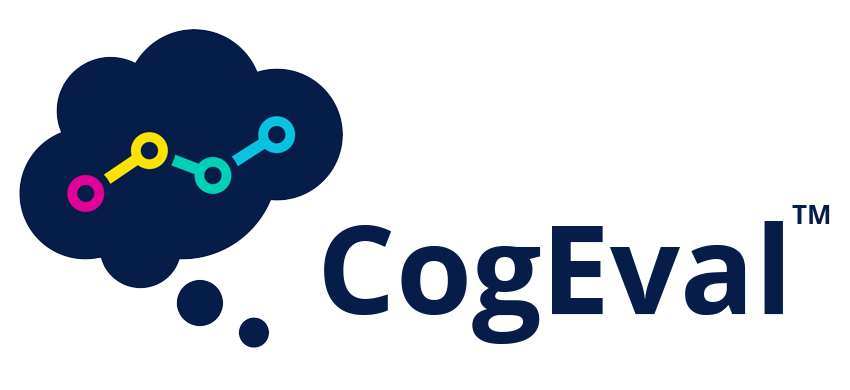Routine Cognition Screening in Individuals with MS
CogEval is an iPad-based assessment designed to evaluate cognitive function in patients with Multiple Sclerosis (MS). Based on the Symbol Digital Modalities Test (SMDT), CogEval assess elements of attention, psychomotor speed, visual processing, and working memory.
Not available on Mobile or Desktop devices as it is an iPad only App
Cognition impairment is common in MS, affecting 40-70% of individuals1, and can have a negative impact on Quality of Life (QoL).1 The National MS Society recommends an early baseline screening with the SDMT or similarly validated tests (e.g the Processing Speed Test in CogEval) for people diagnosed with MS.2
CogEval may simplify cognition evaluation.3 Routine cognition screening with CogEval offers:
- Highly correlated to the recommended Symbol Digital Modality Test
- Instructional video and 2 minute screening for patients that is completed at clinic visit
- Immediate results with comparison to normative data
- No collection or storage of patient identifying information simplifying use in healthcare settings
- iPad based Mobile App freely available from the App Store®
During the two minute CogEval assessment, patients pair abstract symbols with numbers using a key as a guide. Upon completion of the assessment HCPs are presented with patient raw score (total number of correct symbol digit matches) and an adjusted z-score representing patients observed score and the predicted score using data from a linear regression model using age and education variables from a normative study.
References:
1. Disease modifying treatments and symptomatic drugs for cognitive impairment in multiple sclerosis: where do we stand? Niccolai, C., Goretti, B. & Amato, M.P. 2017, Mult Scler Demyelinating Disord .
2. Recommendations for cognitive screening and management in multiple sclerosis care. Kalb R, Beier M, Benedict RH, et al. 2018, Mult Scler, pp. 1665-1680.
3. Processing speed test: Validation of a self-administered, iPad®-based tool for screening cognitive dysfunction in a clinic setting. . Rao SM, Losinski G, Mourany L, et al. 2017, Mult Scler, pp. 1929-1937.


